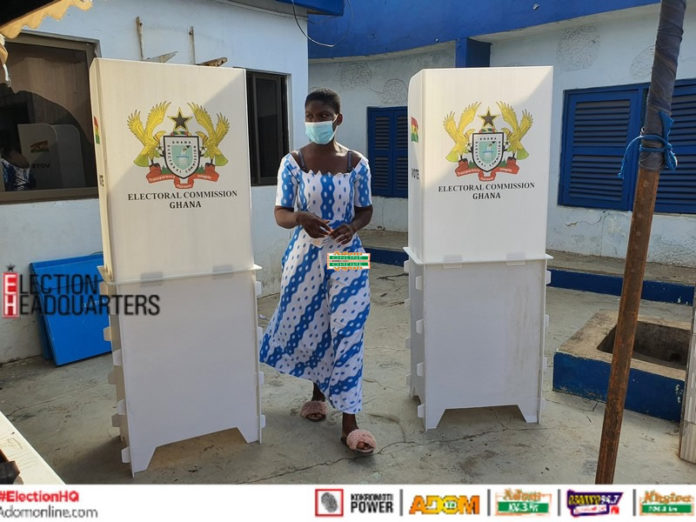Last November, as part of a series of democracy dialogues facilitated by The Democracy Project, the Centre for Gender Research, Advocacy and Documentation (CEGRAD, University of Cape Coast) served as a host.
The dialogue focused on examining the experiences of women in our democratic spaces since the advent of the Fourth Republic.
The insights shared by professors involved with the work of the centre, as well as their stakeholders, were extremely eye-opening.
One of the issues that came up was women who ran for office, the challenges faced and the discouraging effect of such attempts. In essence, the challenges faced deter them and kill any interest for many.
This election year will feature women parliamentary candidates. One of Ghana’s two major political parties, the National Democratic Congress (NDC), has a woman as a running mate to their presidential candidate. In the event of an NDC win, the 4th Republic will have achieved something historic – its first female Vice-President.
What do we perceive happens to women who run for office? And what does our political rhetoric say about how we treat women candidates in the political arena?
Insights from the Afrobarometer Survey
In Round 9 (2022) of the survey, three questions focused on women who run for office. The first asked whether it was unlikely or likely for women and their families who run for office to “gain standing in the community”. A strong majority of 86 per cent responded “somewhat/very likely”. The remaining 14 per cent responded with somewhat/very unlikely.
The second question asked whether it was unlikely or likely for women who run for office to be “criticised, called names or harassed by others in the community” A strong minority of 42 per cent responded “somewhat/very likely”. The remaining 58 per cent responded “somewhat/very unlikely”.
The third question asked whether it was unlikely or likely for women who run for office to “face problems with her family”. A slight minority of 35 per cent responded “somewhat/very likely”. The remaining 65 per cent responded “somewhat unlikely/very unlikely”.
In the same survey, eight out of ten (78 per cent) agreed that “women should have the same chance of being elected to political office as men.” I found it intriguing that two out of ten (22 per cent) agreed that “men make better political leaders than women and should be elected rather than women.”
But these are essentially our perceptions of what happens to women in our political spaces seeking elected office. Overall, they suggest the experience is overall positive. But when four out of ten (42 per cent) believe it is likely that women who run for office will face name-calling, criticism or harassment from the community, that is very concerning.
The 2024 Elections
I understand the “hardball” nature of politics, especially in an election year. And I get that in the heat of politics, our political temperaments are sometimes unguarded, leading us to express things in very unartful ways.
The advent of social media and its role as a tool for political advocacy exacerbates the not-so-positive side of our political temperaments. While I do understand such moments of lapses in judgment, I do not excuse or condone them.
The question for those in the political arena advocating for candidates to be elected is this: will they be part of those whose rhetoric is filled with name-calling and harassment of women candidates, thus leading to as many as four out of ten (42 per cent) perceiving this to be one of the consequences women suffer for running for office?
Or will they be part of those whose rhetoric is focused on the key issues in this election, thus leading to six out of ten (58 per cent) perceiving this as not one of the things women who run for office suffer?
No one is asking for preferential treatment of women in the political arena. Some are likely to even argue that male candidates have had to deal with this since the advent of politics and anyone entering the political arena must be a) fully aware; and b) be prepared to deal with it.
But when the documented barriers to women in our political spaces continue to alert us to these things, it is important to develop a certain level of sensitivity in how we treat women candidates for elected office.
We are roughly three months to the election. Some will likely up the ante. I recently asked a friend if the strong rhetoric observed among some on social media is anything like what he observes on the ground campaigning for his candidate of choice.
There is a choice to be made. And hopefully, the choice is one where our better angels prevail.
That our rhetoric stays away from name-calling that is not complimentary but rather seeks to denigrate women and reduce their accomplishments to inconsequential matters for the elected office they aspire to hold is very crucial.
Source: Dr John Osae-Kwapong
The writer is the Project Director of the Democracy Project.


